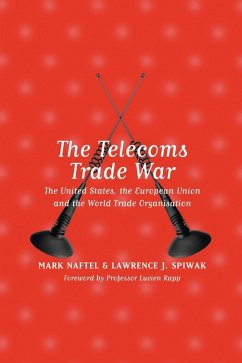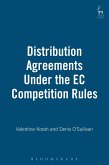If one were to believe the politicians and pundits in the trade press,the world is in midst of a "telecoms revolution," resulting from (the) deregulation and new competitive opportunities represented by the 1997 World Trade Organisation Agreement on Basic Telecommunications Services. This may be true. Unfortunately, however, the actions of many regulators and industry participants more accurately reveal not a telecoms "revolution" but instead a growing telecoms trade war that is dangerously close to spiralling out of hand. In this book, Naftel and Spiwak review U.S. and European competition and regulatory initiatives post-WTO and provide both a useful roadmap to today's U.S., EU and WTO telecoms regulation and an examination of various case studies to illustrate their points. In so doing, the authors discover unfortunately the sad reality that, despite the political rhetoric, regulators on both sides of the Atlantic have eschewed innovative and indeed productive solutions to create a market structure conducive to long-term competitive rivalry. Instead, the authors demonstrate that current policies reveal a growing cynicism towards the maximisation of consumer welfare that will be difficult - if not outright impossible- to remove.
Bitte wählen Sie Ihr Anliegen aus.
Rechnungen
Retourenschein anfordern
Bestellstatus
Storno









